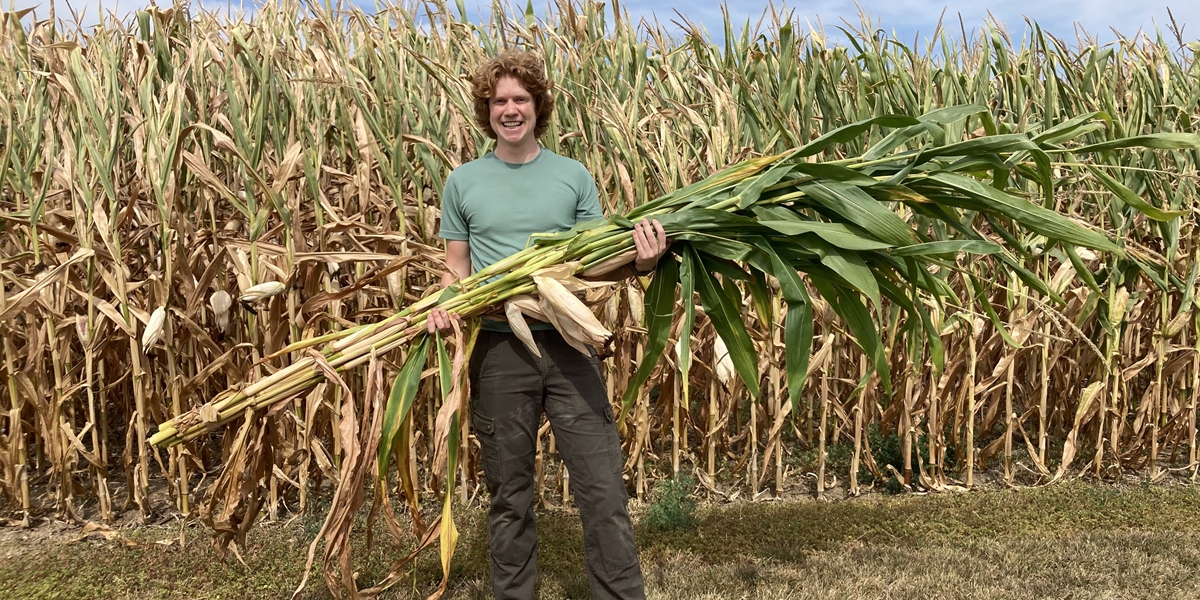Nature lover
Accepted into several graduate programs, Gideon chose to study agroecology at the University of Wisconsin-Madison, which has one of the top soil science programs in the U.S. His undergraduate research experiences at Northwestern included the opportunity to work with one of his professors to design and lead a research project as a member of the college’s Honors Program.
What was your path to majoring in ecological science?
When I was young, my family moved to an abandoned acreage with expansive wild space to explore and fall in love with. As a high school student, I learned I was a skilled scientist and interested in scientific inquiry. Since I didn’t initially recognize how those two interests could combine in ecological science, I began my college career with a biology–health professions major. Introductory biology classes and one-on-one time with professors, however, gave me opportunities to consider what was most important to me about a future in science, and within my first year, I made the switch to ecological science.
Why should a student interested in science consider Northwestern?
For our size, we have a very strong biology department. Our science building is state-of-the-art and equipped for all kinds of undergraduate research opportunities with hands-on learning specimens. Our technological capabilities can compete with much larger schools, but we have the enormous blessing of small classes and one-on-one time with professors.
How is the Christian faith incorporated into academics at NWC?
Northwestern professors constantly remind students how the beauty and order of creation—which is exactly what we study in the ecological sciences—proceeds from a loving Creator. Our inquiry into the order and breath of creation becomes a form of prayer. Topics that are sometimes sensitive for Christian scientists are boldly considered and measured for their virtues and drawbacks. Professors teach them as important elements of biological education, while at the same time encouraging the faithful following of Jesus first.
How did Northwestern prepare you for graduate school?
I spent two years as an intern for Northwestern’s biology department, assisting with research projects and joining many outings to local wild spaces to collect samples and perform assessment of the areas. Between my junior and senior years, I spent the summer working at the Neal Smith National Wildlife Refuge in Prairie City, Iowa, which gave me great experience working for the government and working in service of an important ecosystem. There we had the opportunity to attend the North American Prairie Conference, which allowed us interns to build strong networks with other government agencies and researchers at potential graduate schools.

